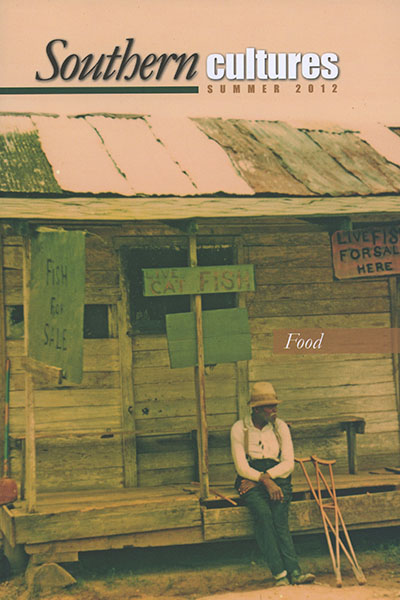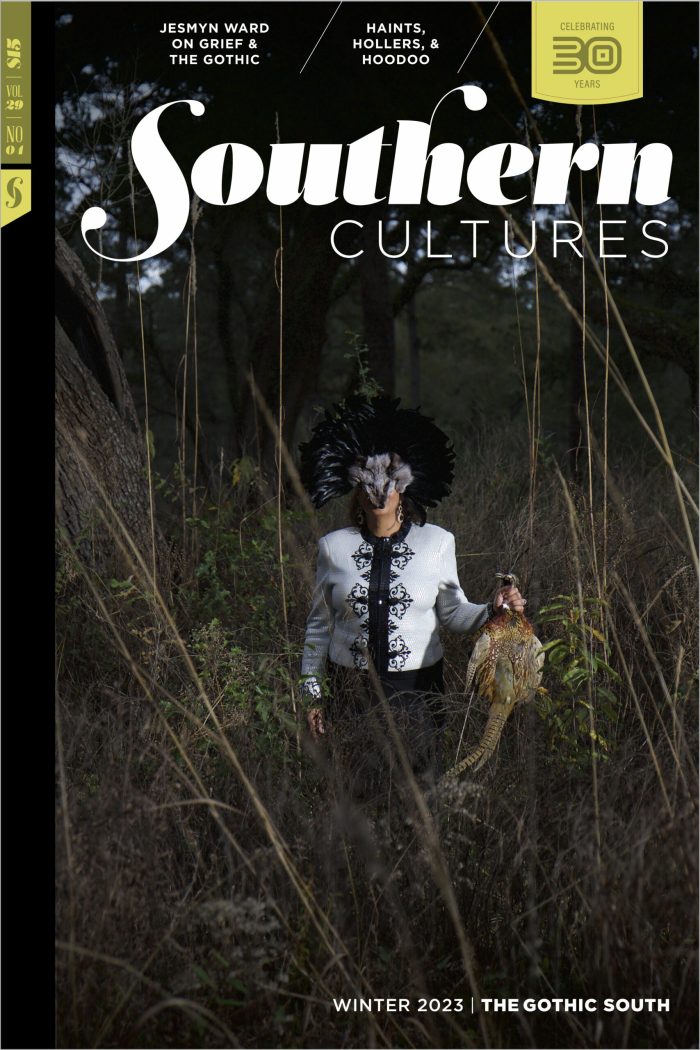by Harry L. Watson
“Wash your hands, tuck in your napkin, and read your fill.” Southern food is big news these days. In the past year or so, the New York Times has printed major features lauding recovered southern food traditions based on heritage seeds and breeds, celebrity chefs, and the national rage for locally grown food, artfully prepared. »
by Marcie Cohen Ferris
“‘I know your damned photographer’s soul writhes, but to hell with it. Do you think I give a damn about a photographer’s soul with Hitler at our doorstep?'” A vast network of reform spread across the South in the first decades of the twentieth century as an army of progressive southerners, white and black, struggled »
by Sara B. Franklin
“I see the participatory nature of food in New Orleans as being in the dishes. My guess is that none of the fine chefs in town would accept the challenge of putting their gumbo against somebody’s mother’s gumbo.” New Orleans native Lolis Eric Elie has worked as a journalist for decades. A former columnist for »
by Rebecca Sharpless
“In April 1930, five hundred potential customers showed up at the opening of Staunton’s curb market, and, in 1936, the market’s most successful vendor, Nettie Shull, made more than $2,000 by selling potato chips, fried apple pies, potato salad, and dressed poultry.” Buying local food is all the rage today. Serious students of food tout »
by Bernard L. Herman
“There’s only one piece of white meat in him, and that’s his neck. The rest of the meat is dark meat. If you fry it, it’s still like a white piece of meat, like a chicken breast. The rest of it looks like a chicken leg.” Two events mark the fall social season on the »
The Rabbit Market in Chatham County, North Carolina, 1880–1920
by Will Sexton
“Although the same cottontails flourished across the region, Chatham County turned its rabbits into something like a regional brand, recognized throughout the South and along the eastern seaboard. By the end of the nineteenth century, Siler City had become the de facto rabbit capital of the Southeast.” The Eastern cottontail rabbit thrived in the edges »
by Shannon Harvey
“Vimala Rajendran’s dinners created a space for people to meet over a common table (or couch, or picnic blanket), make friends, support the livelihoods of others in their region, and imagine how, on any given Wednesday morning while peeling garlic, they could also positively impact global communities.” Almost every week for thirteen years, Vimala Rajendran »
by Courntey Lewis
“Finally, the defendant was called to testify. The air went from lighthearted post-lunch chatting to dour and intense. Judging from the sudden solemnity, one might have imagined that this trial was for drug trafficking or a violent crime. But it was about something that had much more profound implications: picking plants—specifically, wild onions.” We had »
by Michael Chitwood
both sweet and bitter, like that afternoon The woman who made ithadn’t been to churchin years, except for thereat the crimped dough edgesand beaten-egg cumulusof the browned meringue,and beneath it, the pudding,both sweet and bitter,like that afternoon,so long ago,just the two of us,talking a little, eating.





